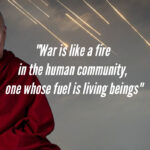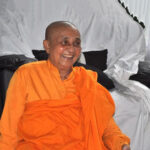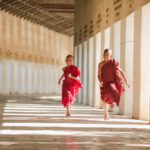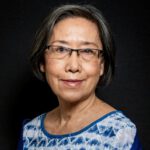Every two years a meeting between heads of state from Europe and Asia (ASEM) is being held, by rotation in an Asian or European country. Independent civil society meetings are organized prior to these exchanges.This year the 9thASEM will be held in Vientiane, the capital of the Lao People?s Democratic Republic. SombathSomphone, Magsaysay Award recipient and founder of PADETC, a leading NGO in Laos, is the co-chairman of the civil society conference. Sombath presided in 2007 over the?GNH3? opening ceremony at WatHinMakPeng, Nongkhai, at the border of the Mekong River just opposite Vientiane. The ceremony initiated the 3rd international conference on Gross National Happiness with shared inter-religious prayers and folk theatre.GNH3 participants from all over the world joined the symbolic Loy Krathongfestival and floated flowers in the Mekong River to express concern for its eco-system under threat of commercial damming.According to Sombath, placing ?happiness? policies on the ASEM agenda would help to transcend political and cultural differences towards a more visionary Asia-Europe cooperation.
The first ASEM was held in Bangkok, Thailand, in 1996. SulakSivaraksadelivered the opening speech at theinitial Asia Europe People?s Forum (AEPF) prior to the heads of state meeting. His speech was titled ?Beyond Geo-economics. Reconceptualizing Euro-Asia Relations?.His proposal for self-organized, civil-society drivenexchanges on socio-economic development and political transformation in a perspective of cultural integrity, is still valid today. Sulak has been a longstanding partner of CCFD-Terre Solidaire, a major French NGO supporting the people?s forum. During the upcoming AEPF in Vientiane, 16-19 October 2012, the Towards Organic Asia (TOA) project of the School for Wellbeing will conduct a ?strategic?workshop. The workshop will be opened with presentations of a group of young organic farmers from the Mekong + Bhutaneco-region.Young organic farmers and activists are planning to gather at a PADETC farm in Paks?, north of Laos11-15 October. From therethey will travel to join the AEPF meeting in Vientiane. The farm is one of seven PADETC farms started-up from the Magsaysay Award earned by SombathSomphone. Tha Tang Organic Farm in Paks? is run completely by a group of young agriculturalists. The AEPF workshop will provide a platform for strategic planning tosupporta pro-active role of young people towards food security, seed sovereignty and the future of ?agroecology?.
?

A TOA team visits Tha TangOrganic Farm in Paks?, Laos.
The motto of the Towards Organic Asia (TOA) projectboldly sates: ?organic agriculture is the heart of global transformation?. Partners from Bhutan play an important role in the TOA project. Bhutan, land of Gross National Happiness (GNH), voices grave concerns regarding the glacier-ecosystem of the Himalayas and Tibetan Plateau where the Mekong River and most great rivers of Asia find their sources. Bhutan has declared, in the light of climate change ? andto strengtheningcommunity resilience to reverse urban migration ? a forward-looking ?100% organic country?- policy.
The Towards Organic Asia Mekong region+Bhutan collaboration (the start of a broader Asian network),with support ofpartner-organization CCFD-Terre Solidaire, has been initiated as a backbone for an innovative Asia-Europe cooperative network.
CCFD-Terre Solidaire is an NGO characterized by its domestic network of French ? locally rooted ? volunteers.From this perspective an international gathering is contemplated related to GNHand likeminded efforts in Europe aiming at transforming ?development paradigms?, probably to be held in Grenoble, France, at the end of 2013. Grenoble is, similar toThimphu ? the capital of Bhutan ? surrounded by mountains. It is situated in the Rh?ne-Alpes, a French region which mirrors the ecosystem of the Mekong River, the Tibetan Plateau and the Himalayas in Asia.
?Roosevelt 2012? in France
Recently St?phaneHessel and Edgar Morin launched the ?Roosevelt 2012? campaign, supported by some 60 well-known French opinion leaders. Among them Patrick Viveret, philosopher, who inspired FAIR (= Forum pour d’ AutresIndicateurs de Richesse). The School for Wellbeing was invited by CCFD-Terre Solidaire to conduct a workshop,together with FAIR,on new ways of measuring ?wealth?. The workshop took placeat a Summer University held in Lyon. How to overcome growing economic inequality, share wealth, between groups within societies; and between countries? The Summer University, a national event with links to the World Social Forum, was a welcome opportunity to anticipate Asia-Europe collaboration towards ?a new global social contract?,and a possible international ?Forum Grenoble? in France in 2013.Pierre Rabhi, poet and pioneer of agro-ecology in France and Noth-Africa, closed the Summer University in his characteristic way.
?

St?phaneHessel, author of Time for Outrage; and Pierre Rabhi, founder of the Colibris movement.
St?phaneHessel, author of theIndignezVous (Time for Outrage), is a retired top-diplomat and former resistance leader. The social movement stirred-up by his book resonates with the Occupy Wall Street campaign. He calls for re-thinking the Bretton Woods conference, USA 1944, where world leaders agreed to the ?Washington Consensus?. The ?consensus? shaped the financial architecture still dominating our world economics today, albeit that in 1971 the ?golden standard? ? currencies pegged to real value of gold ? was abandoned (under pressure of excessive spending on the Vietnam War). This left the world economy with no real common currency standard and with no universal indicator for progress but ?Gross Domestic Product?, which was not designed for it. ?GDP? as indicator of progress has been criticized r
epeatedly, lately by the Stiglitz-Sen-Fitoussi Commission, but no consistent alternative policy framework and adequate index for sustainable development hasbeen generally adopted.
The ?Bhutan Initiative?
Simultaneously a likeminded campaign to restructuring the ?Washington Consensus?, and to providing a new impulse for local economies, has been launched from a totally different corner of the world. After an incubation-period of some 40 years,and under the title ?Wellbeing & Happiness: Defining a New Economic Paradigm?, the ?Bhutan Initiative? has been launched at the UN Headquarters in New York, 2 April 2012www.2Apr.gov.bt, following unanimous adoption by the General Assembly of a Resolution (65/309 Happiness: towards a holistic approach to development) proposed by Bhutan.
GNH: defining a new economic paradigm
Some encouraging examples of GNH implementation-?on the ground? are: the provision of free medical services and free education; a pro-active anti-corruption policy; minimum land property for all extended families;the target of 100% electrification and free access to the media; a strict maximum to land ownership; and, extensive community forestry arrangements in addition to radical preservation of forests in national sanctuaries. Restrictions on tourism. Bhutan decided, based on screening by GNH criteria, to not become a WTO member; and to not extend the practice of mining.In 2008 the ?GNH Index? was launched which monitors wellbeing through 9 domains and subsequent indicators.

Prime Minister of Bhutan Jigmi Y. Thinley delivers the opening speech at the IFOAM?s Sustainable Development Learning Event, Rio+20 (International Federation of Organic Agriculture Movements).
From this practical approach, a discussion on universal governance principles regarding Public Common Goods is emerging. It was the major research question of theinternational exchange-platform Re-thinking Property. Pathway to a Wellbeing Society scenario?organized by the School for Wellbeing at Chulalongkorn University in August 2011.
Bhutan?s position and transformational impulse has been articulated in the Rio+20 documentTime for a Sustainable Economic Paradigm:
?And so, the Kingdom of Bhutan wishes to invite the nations, economists, and ecologists of the world to come together in hammering out a new international consensus on a new sane, sustainability-based global economic paradigm, based on the best available scientific and expert knowledge. It will be a new Bretton Woods to replace an out-dated system that simply no longer works either for the planet or for people.
The new system will require new measures of progress and new national accounts that value our wealth properly and comprehensively (including natural capital and its depletion and degradation), and that properly account for the full benefits and costs of economic activity. And?just as Bretton Woods 1944 established the World Bank and IMF to manage the old growth-based economic paradigm?so the new Bretton Woods will require us to re-design and refashion these global institutions to manage and regulate the new system and ensure proper implementation.?
?Post-Rio+20?efforts towards a new development paradigm, and a global social contract,nowaddress the negotiations regarding the Millennium Development Goals Beyond 2015. Recently three co-chairs of a High-Level UN Panel were appointed: David Cameron, PM of England, Ellen Johnson Sirleaf, President of Liberia, 2011 Nobel Peace Prize recipient, and SusiloBambangYudhoyono, President of Indonesia. Civic action to guide thisdefining global policy development process is urgently needed. The NGO umbrella ?Beyond 2015? has nominated civil society representatives.
Within this context, Bhutan proposes to host in 2014(to be confirmed)a high-level meeting on re-designing the Bretton-Woods system, and on establishing agreement on a sustainable economic paradigm.The country is well-equipped for such high-level international meeting that will urge stakeholders to look at global challenges from different angles, including visions from the ?least developed countries?.
The proposed conference in Grenoble, could provide the unique connection between the French ?Roosevelt 2012? campaign, and related independent organizations and persons, with the ?Bhutan Initiative?, building a bridge between locally based movements in Asia and in Europe, in a process towards a new global ?Himalayan consensus?.
Hans van Willenswaard
Contact persons:
Thanapol Kheolamai, TOA Coordinator, Thailandthanapol@schoolforwellbeing.org
St?phanieGenteuil, intern School for Wellbeing, Francesteph.genteuil@hotmail.co.uk






